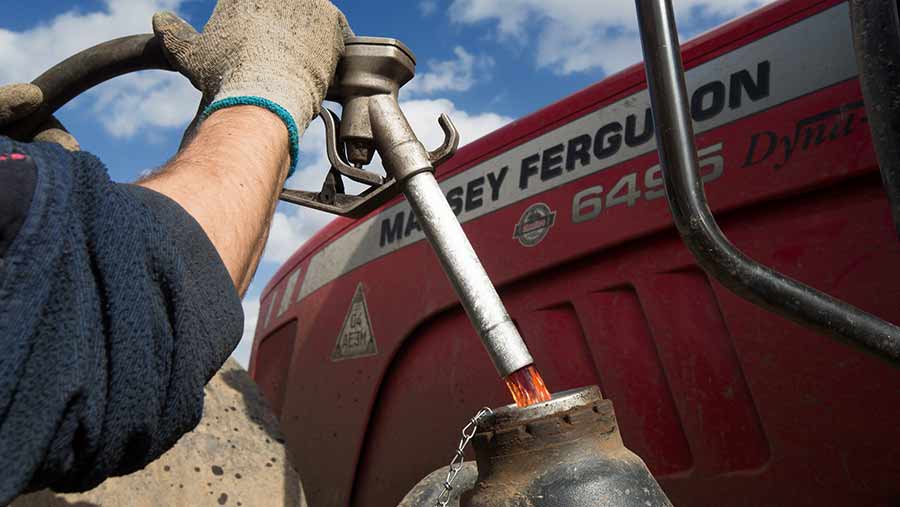Ag inflation hits 28% says Andersons
 © Tim Scrivener
© Tim Scrivener
Agricultural input costs have risen by almost 30% in the past year, especially in the most recent two months.
Levels of agricultural inflation in the UK were already reportedly high at about 10% prior to the Ukrainian conflict.
Consultant Andersons has estimated “agflation” is currently at 28.8% a year, heavily outweighing the consumer price index, which stood at 6.2% in the 12 months to February 2022.
See also: High N prices raise profile of dwarf clover at Overbury Farms
The firm’s “Agflation” index is calculated using the costs of each agricultural input based on Defra’s price indices, and weighting them against the overall spend on each input by UK farmers.
Feed costs account for almost a quarter of the index; other commodities such as fuel and fertiliser are also included.
These commodities can make the index more variable than regular inflation.
Many farm businesses are likely to need to extend existing credit facilities with banks as a result of inflation and an increase in the amount of capital needed.
Michael Haverty, partner and consultant at Andersons, said the value of ammonium nitrate has risen from £645/t in January, to more than £900/t.
Red diesel prices are currently being quoted at up to 130p/litre, compared to an average price of 66p/litre in 2021, according to AHDB figures.
Russia’s importance in energy markets will pose significant challenges for the industries relying on these commodities, according to Mr Haverty.
Natural gas is required for ammonium nitrate production, and this will lead to fertiliser prices remaining elevated.
Mr Haverty said: “At the farm level, the high cost of inputs will challenge many businesses in the next 12 months and beyond. The working capital of farms will be under serious pressure.
“While output prices have risen in some sectors (for example, cereals), these have of course created additional pressure on feed costs in the livestock sectors.
“Across all sectors, the level of cash required to operate has also been increasing considerably.”
Andersons has produced an online seminar on the implications for UK farming and economic outlook.
